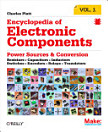Techniques for Noise Robustness in Automatic Speech Recognition
About this ebook
Key features:
- Reviews all the main noise robust ASR approaches, including signal separation, voice activity detection, robust feature extraction, model compensation and adaptation, missing data techniques and recognition of reverberant speech.
- Acts as a timely exposition of the topic in light of more widespread use in the future of ASR technology in challenging environments.
- Addresses robustness issues and signal degradation which are both key requirements for practitioners of ASR.
- Includes contributions from top ASR researchers from leading research units in the field
Ratings and reviews
About the author
Tuomas Virtanen, Tampere University of Technology, Finland
Dr . Virtanen is a senior researcher at Tampere University of Technology. Previously, he has worked at Cambridge University, UK as a research associate. His main research contributions are in sound source separation and its application to robust speech recognition, audio content analysis, and music information retrieval. He is well-known for his work on non-negative matrix factorization based source separation, which is currently widely used in the field. He has published numerous journal and conference articles related to above topics.
Rita Singh, Carnegie Mellon University, USA
Dr. Singh is the CEO of a speech-technology startup but remains an adjunct faculty of the Language Technologies Institute at Carnegie Mellon University. She has been a major contributor to the open-source CMU sphinx and is one of the main architects of the popular Sphinx4 java-based open-source speech recognition system. In addition to her work on core speech recognition technology, she has also developed several algorithms for noise compensation, and was the prime architect of CMU's award-winning submission to the 2001 Naval Research Lab's challenge on automatic recognition of speech in noisy environments (SPINE).
Bhiksha Raj, Carnegie Mellon University, USA
Dr. Raj is an associate professor in the Language Technologies Institute and in Electrical and Computer Engineering at Carnegie Mellon University. He has worked extensively on robustness algorithms for speech recognition, and is very well-known for his contributions to the highly-popular VTS approach for noise compensation, as well as his contributions to missing-feature-based techniques for noise compensation. He has published extensively on and holds patents for algorithms for microphone array processing and signal separation.






